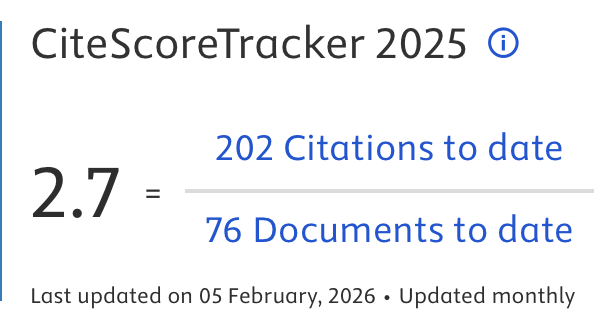MUḤAMMAD NAṢR AL-DÎN AL-ALBÂNÎ AND HIS METHOD OF CORRECTING AND WEAKENING THE HADITH: A CRITICAL READING
DOI:
https://doi.org/10.14421/qh.2020.2102-09Keywords:
al-Albânî, Assessment, Validity, Critical Reading, HadithAbstract
This article aims to describe Muḥammad Naṣr al-Dîn al-Albânî as one of the contemporary scholars who have devoted his efforts in the field of Hadith Science. He believes that the ability to determine the truth or falsity of a hadith not only limited to being done by the earlier clerics, even present scholars may also pass judgment on the validity or weakness of a hadith which is not rated yet by the earlier scholars because according to him, the assessment of hadith is ijtihad which is not stopped until now. By researching some of the work of al-Albânî in the field of hadith, the study is expected to contribute ideas related to al-Albânî method in judgment on the validity or weakness of hadith, and to analyze the consistency of application of his method in the validation of hadith and weaken it. This research shows that al-Albânî followed his discretionary approach, so it is not surprising that many people criticize, given his frequent retreat from his corrections and weaknesses, and the proof of the contradictory provisions of one hadith in different places, and his disorder in documenting narrators.
References
Al-Qur’ān al-Karīm. Madinah: Majma`Malik Fahd li Ṭibā’ah al-Muṣḥaf al-Syarīf, 2006
As-Sijistāni, Abū Dāwud. Al-Sunan. Beirut: Dār al-Fikr. 1994
Ayyub, Aḥmad bin Sulaimān. Muntahā al-Amānī bi Fawāidi Muṣṭalah al-Ḥadīṡ lil Muḥdaṡ al-Albānī. Kairo: Al-Fārūq al-Ḥadīṡiyah, 2003
Al-Shahrazūrī, Ibnu Ṣalāḥ. Muqaddimah fi ‘Ulūm al- Ḥadīṡ. Beirut: Dār al-Kutub al-‘Ilmiyah, 1981.
Al-‘Asqalānī, Ibnu Ḥajar. Tahżīb al- Tahżīb. Beirut: Dār al-Fikr, 1990.
Al-Albānī, Muḥammad Nāṣīruddīn. Irwā’ al-Ghalīl fī Takhrīj al-Ḥadīṡ Manār al-Sabīl. Beirut: al-Maktab al-Islāmī, 1985.
———, Silsilah al-Aḥādīṡ al-Ṣaḥīḥah. Riyadh: Dār al-Ma’ārif, 2003.
———, Silsilah al-Aḥādīṡ al-Ḍa’īfah. Riyadh: Dār al-Ma’ārif, 2003.
———, Ṣifatu Ṣalāt al-Nabī Ṣallā Allāhu ‘alaihi wa Sallama min al-Takbīr ilā al-Taslīm ka Annaka Tarāhā. Riyadh: Dār al-Ma’ārif, 2003.
———, At-Tawassul Anwā’uhu wa Aḥkāmuhu. Beirut: Al-Maktab al-Islāmī, 1997.
———, Al-Ḥadīṡ Ḥujjatu bi Nafsihi fī al-‘Aqāid wa al-Aḥkām. Riyadh: Dār al-Ma’ārif, 2005.
———,Tamām al-Minnah fi Ta'līq 'alā Fiqh al-Sunnah. Riyadh: Dār al-Ma’ārif, 2008.
———, Ṣaḥīḥ al-Targhīb wa al-Tarhīb. Riyadh: Dār al-Ma’ārif, 2004.
———, Ṣaḥīḥ wa Ḍa'īf al-Jamī' al Ṣaghīr. Riyadh: Dār al-Ma’ārif, 2005.
———, Ṣaḥīḥ wa Ḍa’īf Sunan Ibn Mājah. Iskandariyah: Markaz Nur al-Islam, 2000.
———, Ṣaḥīḥ wa Ḍa’īf Sunan al-Tirmiżī. Iskandariyah: Markaz Nur al-Islam, 2000.
———, Ḍa’īf al-Targhīb wa al-Tarhīb. Riyadh: Dār al-Ma’ārif, 2004.
———,Nisbul Majānīq li Nisfi Qiṣṣati Gharānīq. Riyadh: Dār al-Ma’ārif, 2003.
al Ḥalabi, Nūruddīn Muhammad 'Itr. Manhaj al-Naqd fī ‘Ulūm al- Ḥadīṡ. Damaskus: Dār al-Fikr, 1997.
As-Suyūṭī, Jalāluddīn. Tadrīb al-Rāwī. Beirut: Dār al-Fikr. 1980.
Al-Ṣālih, Ṣubḥi Ibrahim. ‘Ulūm al- Ḥadīṡ wa Muṣṭalāḥuhu: ‘Irḍ wa Diāasah. Beirut: Dār al-‘Ilmi lil Mulāyīn, 1984.
Hādī, ‘Iṣām Mūsā. ‘Ulūm Al- Ḥadīṡ lil ‘Alāmah al-Albānī. Oman: Al-Dār al-‘Uṡmāniyyah, 2003.
Ghurābilī, Āisyah. Manhaj al-Albānī fī Taṣḥiḥ al- Ḥadīṡ wa Taḍ’īfihi. Jazair: Jāmi’atu al-Ḥāj li Khaḍri Batnah, 2007.
Al-Syaibanī, Muhammad bin Ibrahīm. Ḥayāt al-Albānī wa Aṡāruhu wa Ṡanā’ al-‘Ulamā’ ‘alaihi. Kuwait: Mansyūrāt al-Markaz al-Makhṭūṭāt wa al-Turāṡ wa al-Waṡāiq, 2004.
Al-Syahrīy, Muhammad bin Ẓāfir. ‘Ilm al-Takhrīj wa Dauruhu fi Hifẓi al-Sunnah al-Nabawiyyah. Riyad: Majma`Malik Fahd li Ṭibā’ah al-Muṣḥaf al-Syarīf, 1995.
Al-Khaṭīb, Muhammad ‘Ujjāj bin Muhammad Tamīm bin Ṣālih bin Abdillah. Al-Sunnah qabla al-Tadwīn. Beirut: Dār al-Fikr, 1987.
Al-A’ẓamī, Muhammad Musṭafā. Manhaj al-Naqdi ‘Inda al-Muḥaddīṡin. Riyadh: Maktabah al-Kauṡar, 1982.
Muslim bin al-Ḥajjāj an-Naisabūrī. Al-Jamī’ al- Ṣaḥīḥ. Beirut: Dār al-Kutub al-‘Ilmiyah, 1992.
As-Sibā’ī, Musṭafā Ḥasani. Al-Sunnah wa Makānatuha fī al-Tasyrī’ al-Islāmī. Damaskus: al-Maktab al-Islāmi, 1982.
Downloads
Published
Issue
Section
License
Publishing your paper with Jurnal Studi Ilmu-ilmu al-Qur'an dan Hadis means that the author or authors retain the copyright in the paper. Jurnal Studi Ilmu-ilmu al-Qur'an dan Hadis uses license CC-BY-NC-ND or an equivalent license as the optimal license for the publication, distribution, use, and reuse of scholarly works. This license permits anyone to copy and redistribute the material in any medium or format and must give appropriate credit, provide a link to the license, and indicate if changes were made. If you remix, translate, transform or build upon the material you may use it for private use only and not for distribution. Jurnal Studi Ilmu-ilmu al-Qur'an dan Hadis granted an exclusive non-commercial reuse license by the author(s), but the author(s) are able to put the paper onto a website, distribute it to colleagues, give it to students, use it in your thesis, etc, so long as the use is not directed at a commercial advantage or toward private monetary gain. The author(s) can reuse the figures and tables and other information contained in their paper published by Jurnal Studi Ilmu-ilmu al-Qur'an dan Hadis in future papers or work without having to ask anyone for permission, provided that the figures, tables, or other information that is included in the new paper or work properly references the published paper as the source of the figures, tables or other information, and the new paper or work is not direct at a private monetary gain or commercial advantage.
Jurnal Studi Ilmu-ilmu al-Qur'an dan Hadis journal Open Acces articles are distrubuted under the Creative Commons Attribution-NonCommercial-NoDerivatives 4.0 International (CC BY-NC-ND 4.0). Article can be read, copy and redistribute the material ini any medium or format under the following conditions:
Attribution — You must give appropriate credit, provide a link to the license, and indicate if changes were made. You may do so in any reasonable manner, but not in any way that suggests the licensor endorses you or your use.
NonCommercial — You may not use the material for commercial purposes.
NoDerivatives — If you remix, transform, or build upon the material, you may not distribute the modified material.











